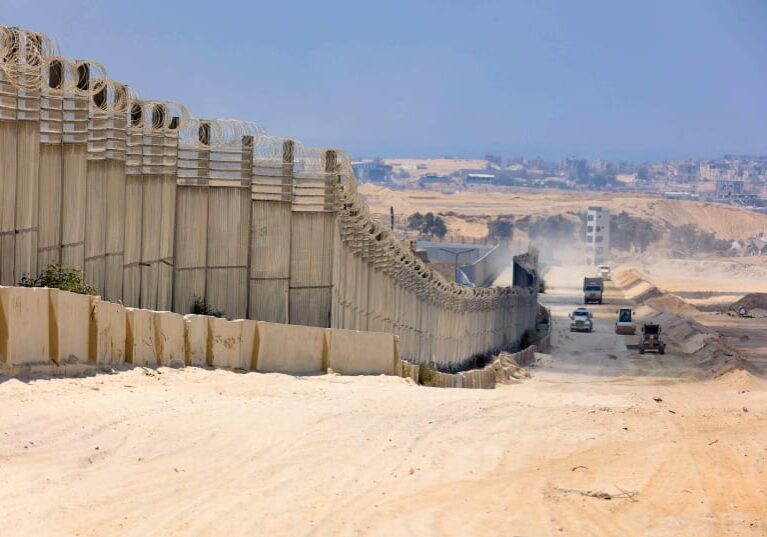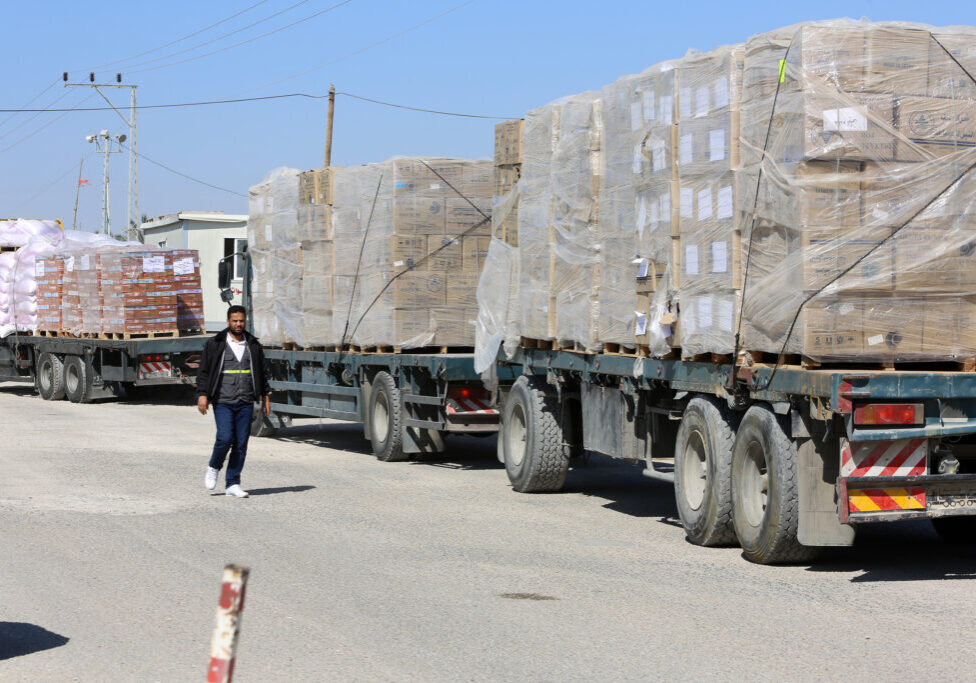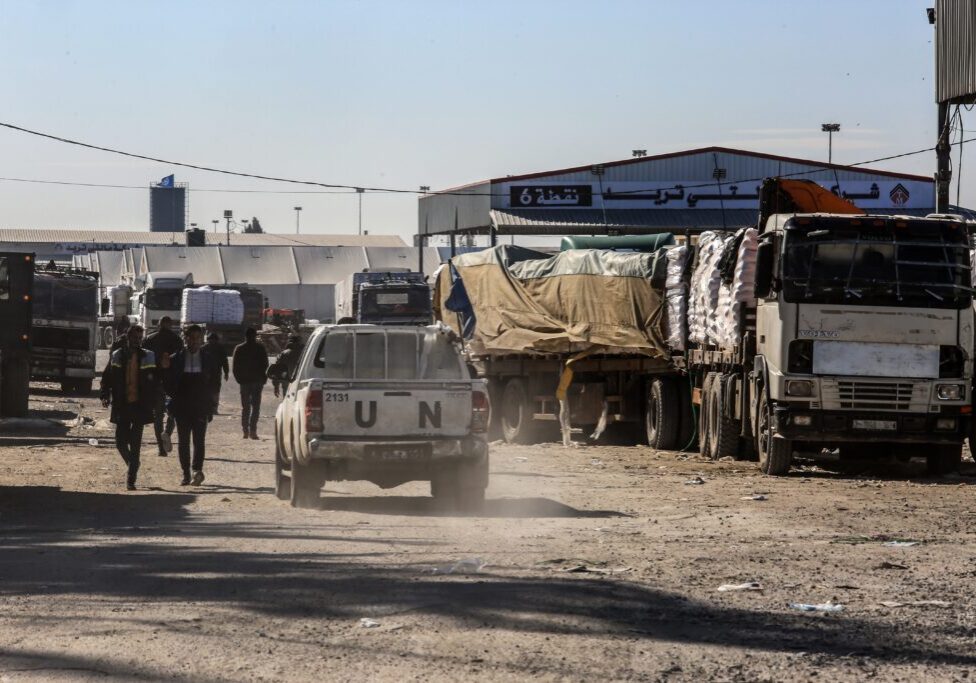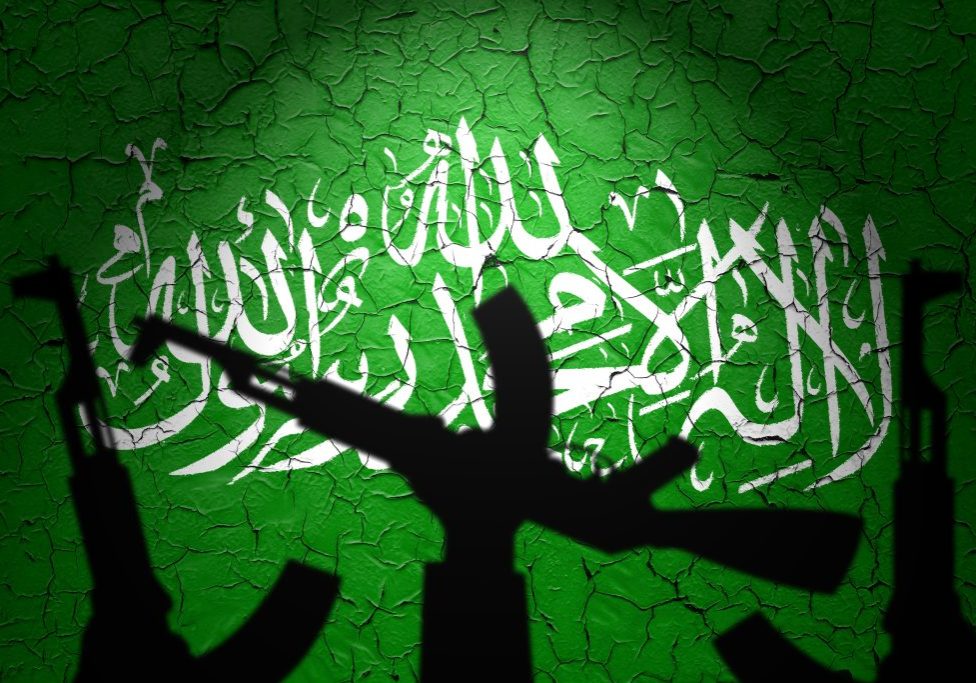Australia/Israel Review
Behind the News – March 2017
Mar 8, 2017 |
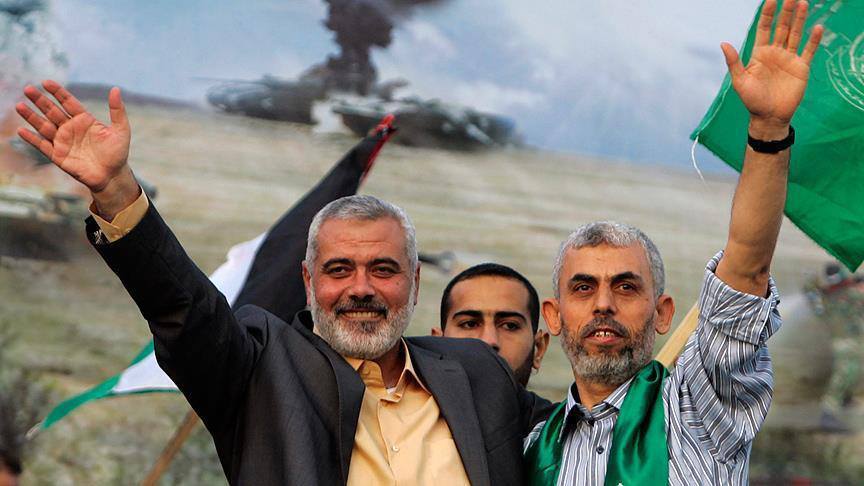
TERROR AND ROCKET REPORT
On Feb. 9, an 18-year-old Palestinian armed with a locally made machine gun fired at passers by at a market and bus stop in the Israeli city of Petah Tikva. He wounded seven people before his gun jammed.
In February and late January, there was a continuation of terror attacks using knives, guns, vehicles, rocks and Molotov cocktails, including a number of incidents of Palestinians throwing stones at buses, causing injury to passengers.
On 20 February, two rockets launched at Israel from Sinai landed in an open area near the Israel-Egypt border. ISIS claimed responsibility. The attack followed ISIS claims that an attack by an Israeli drone in northern Sinai struck a vehicle and killed five ISIS operatives. On February 8, in an attack also claimed by ISIS’s Sinai Province, four rockets were fired from Sinai at the southern Israeli city of Eilat. On Feb. 6, a rocket fired from Gaza landed in an open area in Israel’s Negev. Israel attacked a number of Hamas targets in response.
NEW RADICAL HAMAS LEADER
On Feb. 17, Hamas elected Yahya Sinwar, a former Israeli prisoner who was released in the Gilad Shalit deal, as its new leader in Gaza.
While largely unknown to the outside world due to his preference to shun the media, Sinwar, a senior member of Hamas’ military wing, is considered one of the most powerful men in Gaza, serving as the link between the organisation’s political and military wings.
Sinwar is considered radical and unpredictable. He is believed in Gaza to have personally killed more than 12 suspected collaborators, and called for more soldier abductions upon his release. MK Avi Dichter, a former Shin Bet head, has called him “Sheikh of the Murderers” and expressed regret Israel had not assassinated him.
Sinwar received life-saving brain surgery from Israel during his 22-year imprisonment.
Hamas has said Sinwar’s elevation does not mean another round of fighting with Israel is imminent. This is despite a senior IDF official telling Israel’s Channel 2 that Hamas has fully replenished its military capability following Operation Protective Edge in 2014.
HAMAS AND EGYPT REACH UNDERSTANDINGS
Hamas and Egypt have reportedly quietly reached a number of agreements in January during a delegation headed by Vice-President of Hamas’ Political Bureau, Ismail Haniyeh, to Cairo.
Reports say Haniyeh’s delegation agreed to stop weapons smuggling and fighters infiltrating the border between Gaza and Sinai and pledged to prevent jihadist groups using the Strip as a base for preparing attacks against Egyptian forces.
In addition to Hamas agreeing to hand over people wanted by the Egyptians, the sides also agreed on a plan to open the Rafah border crossing and spoke of expanding trade between Egypt and Gaza.
They also discussed Egypt playing a mediating role between Hamas and Israel and Hamas and Fatah.
ISIS TARGETING TEENAGERS
Islamic State (ISIS) has reportedly stepped up its online recruitment of teenagers to launch attacks in their home countries, according to German security agencies. There has been a sharp increase in terror attacks either being planned or carried out by minors across Europe under the tutelage of ISIS operatives in the Middle East.
Three 16 year-old German teens were charged with terror offences after an attack on a Sikh house of worship in April 2016. One of the teenagers received a package containing all of the bomb-making materials and instructions he needed to carry out the attack. This followed the arrest and subsequent imprisonment for six years of a 15-year-old girl who stabbed a German police officer in the neck with a kitchen knife.
European security agencies say ISIS monitor potential targets for grooming through a variety of websites. Once identified, ISIS recruiters use social media, as well as computer games, to groom and coerce their teenage targets to carry out attacks.
HEZBOLLAH PROGRESSES WITH MISSILES AND PASSPORTS
It was revealed by unnamed Western intelligence officials during the Feb. 17-19 Munich Security Conference that Hezbollah has obtained Russian Yakhont anti-ship missiles. These missiles, with a range of over 300 kilometres, would give Hezbollah the ability to strike Israel’s natural gas fields, a high-profile target.
Hezbollah leader Hassan Nasrallah commented as recently as this month that “you (Israel) will be surprised with what we are (now) hiding which could change the course of any war.”
Meanwhile, a CNN investigation has highlighted a reported scheme to sell thousands of dollars worth of passports and visas out of the Venezuelan Embassy in Iraq. Dozens of documents were reportedly issued to residents in the Middle East, including people connected to Hezbollah.
SANCTIONS FOLLOW IRAN MISSILE TEST
The Trump Administration imposed new sanctions on Iran on Feb. 3, following the latest round of Iranian missile testing. This marks at least the 15th time that Iran has tested ballistic missiles since the Joint Comprehensive Plan of Action was announced in July 2015.
Iran’s nuclear chief Ali Akbar Salehi also stated on Feb. 5 that Iran would soon have 60% more stockpiled uranium than it did prior to the deal.
The new sanctions target specific companies and arms traders from Iran, Lebanon and China.
According to German intelligence sources, Iran also recently tested a cruise missile called “Sumar” that is capable of carrying nuclear weapons. The missile travelled 600 miles before it exploded, in what may have been an accidental or intentional detonation.
SYRIA: MASS HANGINGS AND CHEMICAL WEAPONS
A report from Amnesty International, released on Feb. 7, details a calculated campaign by the Syrian Government of extrajudicial executions by mass hanging at Saydnaya Prison. According to the report, groups of up to 50 people were taken out of their prison cells and hanged each week between 2011 and 2015. As many as 13,000 people were hanged in secret, most of them civilians believed to be opposed to the government.
In addition, a Feb. 13 report from Human Rights Watch documents at least eight separate chemical attacks using chlorine gas by the Syrian regime. The attacks left nine civilians dead, including four children, and roughly 200 wounded.
These attacks come despite the Assad regime joining the Chemical Weapons Convention in 2013 and pledging to give up its chemical weapon stockpiles, after it was accused of using sarin gas in an attack. Although chlorine is not explicitly considered a chemical weapon under the Convention, weaponising the chemical properties of a substance is prohibited.
A SECRET SUMMIT?
News about a previously unknown peace summit was published in Ha’aretz on February 19. An unnamed Obama Administration official claimed former Secretary of State John Kerry had arranged a summit with Israeli PM Netanyahu, Egyptian President Al-Sisi and King Abdullah of Jordan in the Jordanian coastal city of Aqaba in February 2016. According to the source, Kerry offered Netanyahu a regional peace plan where Arab countries would recognise Israel as a Jewish state which would set in motion renewed negotiations with the Palestinians, including a partial settlement construction freeze. The source claimed the offer was rejected by Netanyahu due to a lack of support from his coalition partners.
Whilst the article’s clear imputation was that Netanyahu scuttled the summit, according to sources close to Netanyahu, conditions placed on the negotiations by the Obama Administration were the reason the talks failed, and it was Netanyahu who initiated the sequence of meetings that led to the Summit in the first place.
Tags: Egypt


